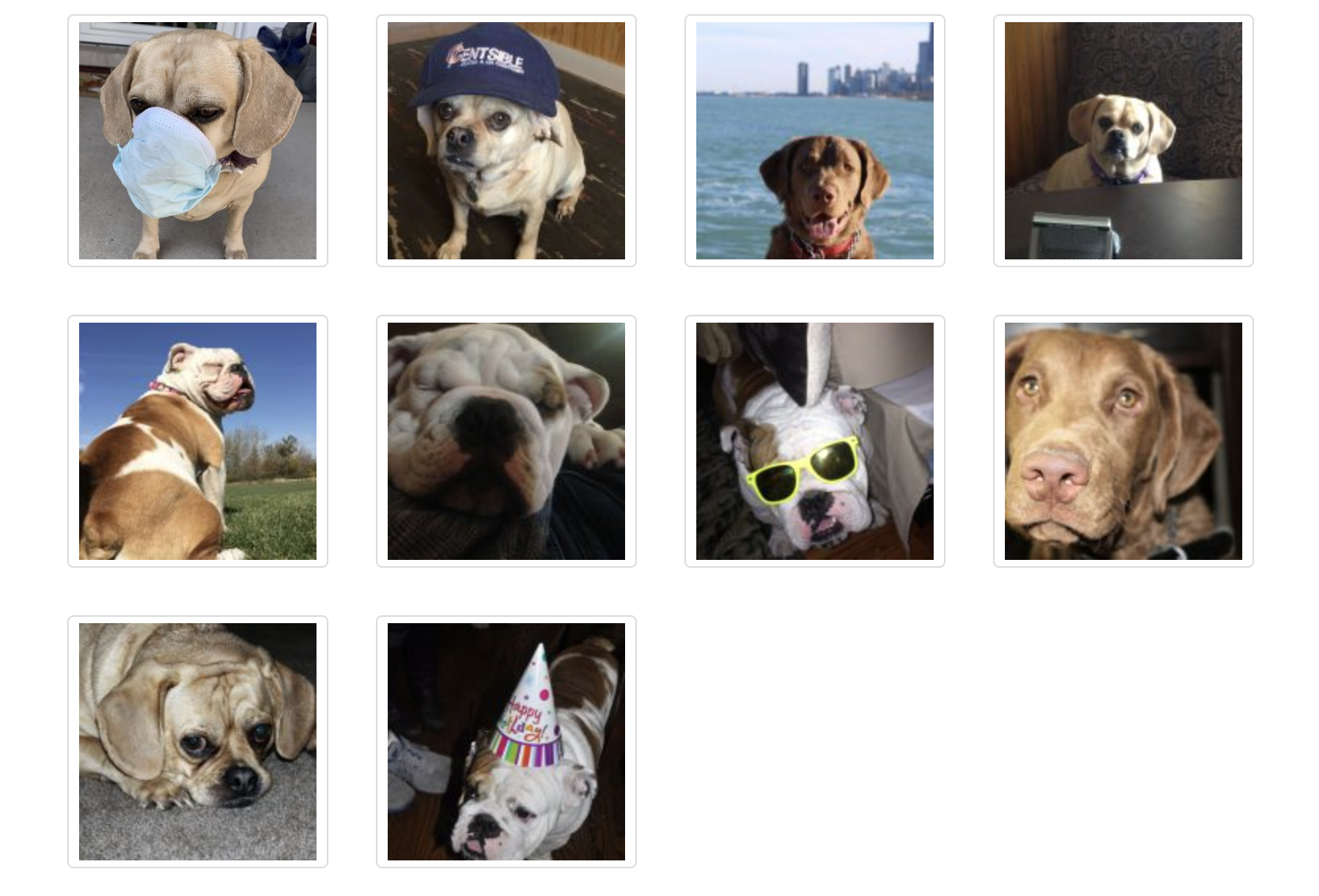We care about our pets and their comfort!
Many of us have pets that we care about at home. It is normal for many people to turn their heat down low, or their air conditioners off when they are not home. However, the combination of these two things isn’t very good. If you have pets at home, it is important that you remember to keep the house comfortable for them as well. You may not need to keep it to the degree that you would like it comfortable, but it is important for their health and safety that you regulate the temperature at home, even if you are not there. If it is very cold in the winter, or very hot in the summer, your pets at home can be feeling just as uncomfortable as you are. It is important that you leave some sort of heating or cooling device running (depending on the season) to keep them comfortable while you are gone. Animals that are left at home to deal with extreme temperatures can suffer from severe health problems, or get very sick. It is also important to leave them plenty of water or other ways to cool off in the summer, or maybe leave out some extra blankets, or other ways for them to warm up in the winter. It is important to remember that our pets react to temperature just like we do, and sometimes are even more sensitive to it than we are. So, always remember to regulate the temperature with your pets in mind if you are not going to be home!
Beware of Dog…Near Air Conditioner
As much as we love our dogs, we all know that there are times when “man’s best friend” gets on our bad list. For example, when you come home to a trashcan that had been previously full spread out all over your floor or when those hamburgers you set out to defrost find their way into Buddy’s mouth. Lastly, when you walk downstairs to find that your sweet little puppy had an accident on your brand new white carpet.
Dog pee does not just ruin carpet; it can also harm your air conditioner. The outside unit of your air conditioner is called the condenser unit and often these are in backyards or exposed on the sides of homes. When a dog lifts his leg, it can cause the metal to be eaten away thereby causing corrosion on the refrigerant coil. Refrigerant is what cools your home, so if the coil gets leaky because of your dog (no pun intended), your air conditioner will not function properly.
How can we prevent this? First, if you and your four-legged friend are going on a walk in this lovely spring weather and he looks like he has to go, steer him clear of any exposed air conditioning units. Second, to protect your condenser in the backyard you can plant bushes around it or build a fence to discourage the dog from going near there. Also, odor sprays to deter dog urination can be helpful as well. If building a new home think about the placement of the condenser, it might be best on the side of the house where your dog or others cannot reach it.
How Pets affect your HVAC System
Whether you have pets or not, it’s to your advantage to make sure that the air filters in your home are clean. The air filters play a very important role in the entire HVAC system.
Your air filters help prevent contaminants from entering into your system’s air distribution and also protect the HVAC equipment from dust buildup. Dirty or clogged air filters cause your system to work harder and run longer. These conditions cause both higher energy bills and can also lead to system malfunctions.
Problems with Pet Hair
Regularly changing your air filter if you have pets is a must! When your system blows conditioned air into a room, it also sucks up the stale air to re-condition for later use. Contaminants, such as dust and dander end up being sucked in along with the stale air. Even if you have a pet with short hair, it doesn’t take long for pet hair to clog up your filter and hinder your system’s efficiency.
With Hair Comes Dander
Most pet owners are aware of how easily pet hair can clog up an air filter, but some may forget about pet dander.
Pet dander is composed of tiny, even microscopic flakes of skin shed by cats and dogs. Many people are allergic to dander, and suffer as a result of poorly cleaned air filters which become inundated with pet hair and dander.
Duct work is made of metal, which causes it to attract pet hair and dander. When the furnace or cooler turns on, a little of the mixture of dander and hair blows through the system, and you and your family end up breathing it in.
How to Remove Pet Hair from the Air
In order to help eliminate excess pet hair from the air, make sure to give your pet regular baths. This will help to keep the shedding in check and keep the hair in the tub rather than in the air. You may also want to invest in an air purifier, which are made to remove pollen, pet hair and other particles from the air. A purifier can safely run at all times of the day in order to keep your home’s air hair-free.
Dogs and Humidity
Heat and humidity tend to affect dogs worse than people due to differences in the way dogs are able to cool themselves. Our primary method of cooling is by producing sweat to evaporate the heat away. Anyone that goes outside when the humidity is 90% causing the heat index to rise to 110 knows how much we rely on this process. Dogs do not have sweat glands over their body to accomplish this though. They “sweat” through panting and through their foot pads. These are the evaporative areas of a dog’s body. As dogs pant they are able to move a large amount of heat out of the body and evaporate it away over their wet tongues. As humidity rises, water cannot evaporate as well so the heat will not evaporate effectively. This makes dogs more susceptible to heat related diseases such as heat stroke in the summer months.
Dogs’ temperatures are normally 100-102. If they are exposed to heat during the summers here, their temperatures can easily rise to 105. At this temperature, you may notice they begin panting or act like they cannot catch their breath. You may notice their tongue hanging to the side of their mouths while panting and extended out as far as it seems able to rather than wanting with their tongue out of the front of their mouths. As their temperatures increase to 106-107, dogs can develop a rapid pulses, begin acting dizzy, collapse or lie down and refuse to walk, develop vomiting or diarrhea, or develop bright red gums. As their temperatures approach 108-110, they can suffer brain, liver, and kidney damage that can be irreversible.
The first thing that should be done is prevention. Do not take your dogs out to play in the heat of the day, which during the summers here is almost all of the time. A short early morning or late night walk would be in the best interest of our pets. Do not take them on their normal 30 minute or hour long walks. It can take less than 15 minutes to cause a heat stroke if the conditions are right. Acclamate your dogs to the heat by exposing them to short walks or a few minutes of play while the temperatures are increasing. I have seen people taking their overweight large breed dogs for mid-day runs in the summer. If these pets are not used to a 30 minute walk in the winter, they will not be ready to handle this activity level. Use caution with smushed faces such as boston terriers or shitzus, elderly or very young dogs, dogs with health conditions that compromise their ability to pant effectively (pets with lung disease) or heart disease. Keep outdoor dogs indoors during the summer months. Do not take them on car rides as the heat in a car easily rise to 130 degrees within just a few minutes, even with windows open.
If you notice your dog becoming overheated, discontinue activity, remove them from the source of heat immediately, and place them in a cool environment (air conditioning would be the best option). Cool them with cool (not cold or ice) water over their backs or bellies. Allow plenty of access to water. A rectal temperature can be taken. If this is over 106, they should be seen by a vet for emergency care. You should begin your cooling efforts before placing them in the car though as cooling your pet is the most important aspect of treatment initially. If their temperature is below 106 but they do not seem to be cooling off or are acting abnormally in any way (see symptoms described above) you should take them to a vet immediately.




